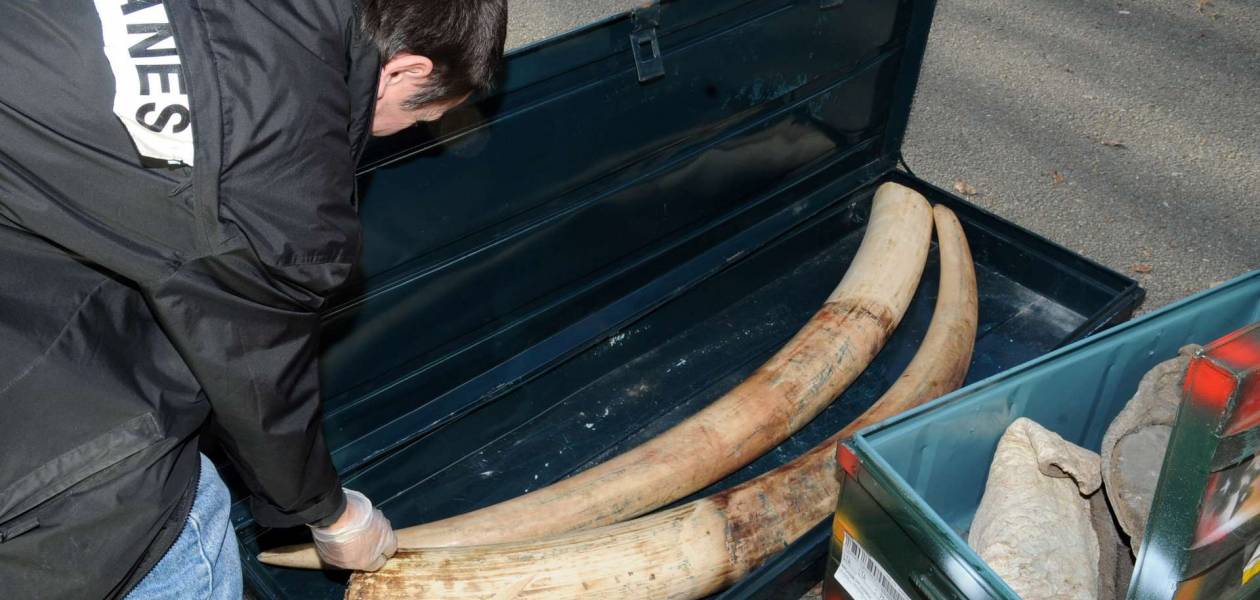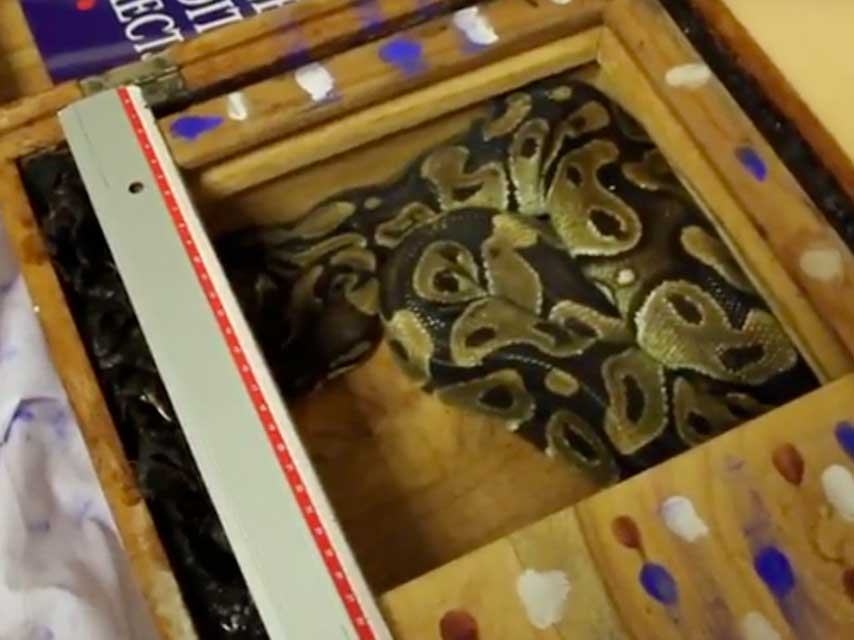
On Tuesday, June 15, 2021, the Finistère gendarmerie in France arrested four people suspected of engaging in illegal trade in wild species.
As part of a larger case, the Quimper prosecutor's office opened a preliminary investigation for "unauthorized possession and transfer of protected animals or unauthorized importation of non-domestic animals". No less than forty-four pythons, iguanas and reptile eggs were seized during the arrest. Authorities have unveiled details of the recovered animals. There were 32 juvenile dwarf reticulated pythons, five adult dwarf reticulated pythons, two mainland pythons, two curtus pythons, one adult brengersmain python, one albino phantom reticulated python, and one albino reticulated python. To this were added several iguanas, many eggs of different reptiles and six terrariums. A statement released later in the week said that "the animals were entrusted to authorized breeders by decision of the judicial authority" , stating that only nine unhatched eggs "were euthanized, with the consent of the mis. in question, because no breeder could accommodate them because of the genetic manipulations possibly carried out ”.
This affair, among so many others, is an opportunity to recall that the illegal trade in exotic animals is a very widespread traffic across the world and extremely lucrative. Regularly, the customs services at airports, which do valuable work, get their hands on increasingly varied and important cargoes. There is no need to stress the extent to which this traffic poses a considerable threat to the planet's biodiversity and ecosystems.

A traffic which is constantly increasing, to the point of placing itself alongside trafficking in arms, drugs and counterfeiting. This is to say the colossal sums generated by this trade; several billion dollars a year! If we convert this money into the number of animals taken out of their natural environment, exploited, badly treated and killed, it makes you dizzy and it is absolutely scandalous.
Even if this trade is not new, it is clear that it is booming and fueled by a global fad. Indeed, it is very trendy nowadays to post on social networks with a wild animal. And it doesn't matter if the species we have at home is endangered or not. The trend cannot accommodate this kind of consideration. As long as two or three celebrities regularly post pictures or videos showing them everyday with wild animals, we can be sure that millions of mindless followers will want to do the same. Who his feline, who his boa, who his little monkey with the adorable face. And here is the demand which explodes and the traffickers who rub their hands. Because the problem is there nowadays: social networks. What are the best current means to maintain this traffic? Instagram as a showcase, WhatsApp as a means of communication, while remaining anonymous. "Thanks to social networks, people who run illegal farms can open their business to the whole world and sell these animals under cover" reported recently Reha Hutin, the president of 30 Million Friends.

In view of the regular seizures and the frightening figures given by customs services around the world, one is entitled to wonder about the effectiveness and usefulness of the Convention on International Trade in Species of Wild Fauna and Flora endangered (in English Convention on International Trade of Endangered Species, CITES ), also called Convention of Washington . This intergovernmental agreement signed on March 3, 1973 in Washington by 80 countries is supposed to strictly regulate this trade and ensure that: "international movements, whether commercial or not, are limited to only specimens accompanied by permits / certificates proving that their removal is legal and compatible with the sustainability of the species concerned ” ; the customs services then check the validity of the documents.
The mortality of exotic animals taken from their natural environments is high. Indeed, many do not survive the terrible transport conditions imposed on them before arriving at their destination. 10% of animals remaining alive, is the percentage commonly mentioned! They must be hidden and for that, the traffickers do not hesitate to make them travel in crates in which the animals suffocate, with little or no food and water. Many animals are even discovered by customs, locked in suitcases! and if they do not die during transport, many will perish later for lack of care or treatment appropriate to their species because those who collect them know nothing. Not to mention the animals subsequently abandoned because they become cumbersome or dangerous as they grow.
The advent of the internet has provided an unexpected growth driver for traffickers. This medium spreads the most senseless trends and rumors of which animals are the first victims. The examples would be too numerous and the list of cases of wild animal discoveries far too long. We report them regularly in this newspaper over the news.
We cannot repeat it enough. An animal is not a toy. It is not a medicine and even less some elixir. It is not a fashion accessory or an outward sign of wealth. He is a living being who has the right to respect, consideration and protection. And he will never be as happy or as beautiful as in his natural environment. So leave it and go show off with something else.
Posted on 2021-06-19 11:51








Comments